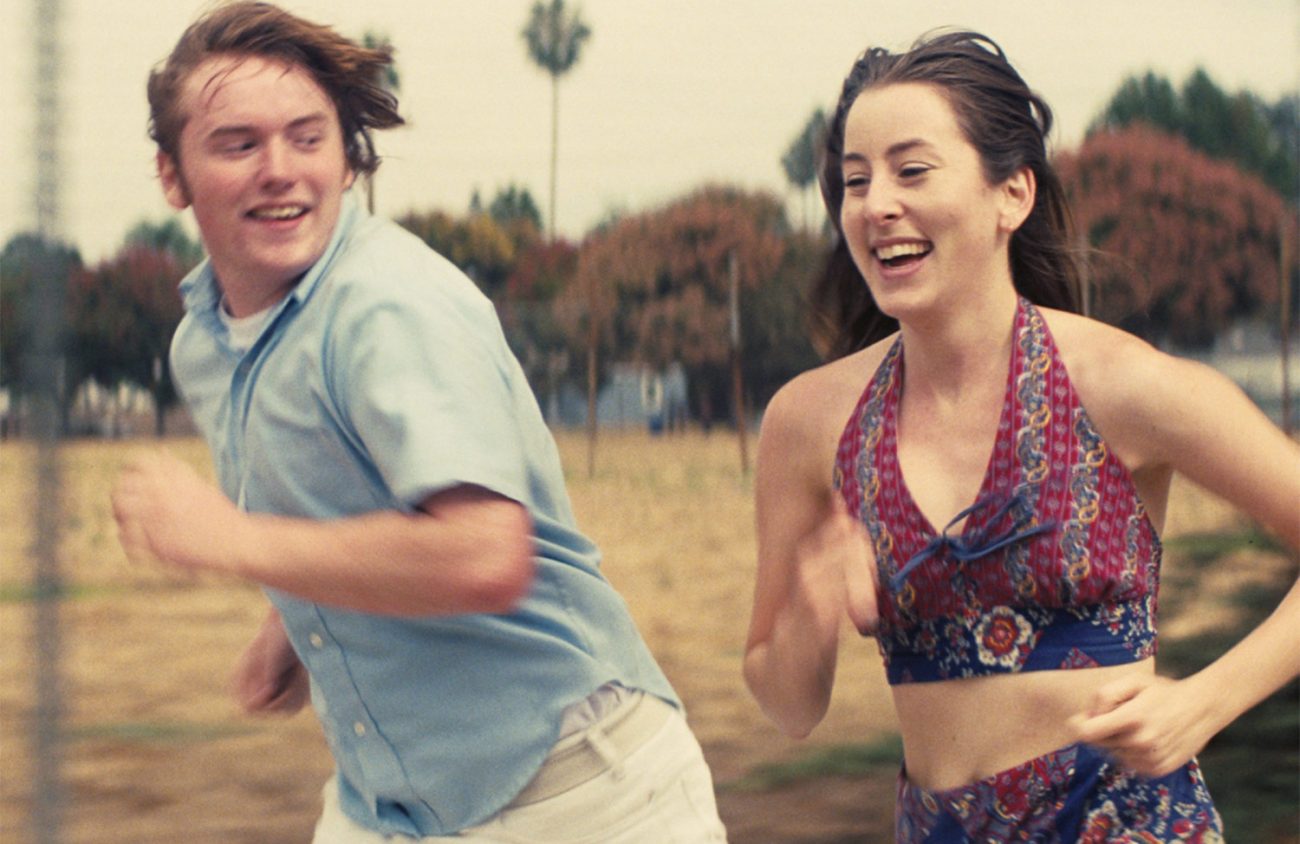I had no idea I’d been waiting my entire adult life for the absurd and exhilarating spectacle of Sean Penn and Tom Waits chewing up the scenery together in a smokey L.A. bar named Tail o’ the Cock, but there it is. There may indeed be nothing new under the sun, but the silver screen is a different matter altogether.
What’s more, this hilarious moment is but the least of the pleasures to be had in director Paul Thomas Anderson’s new film, Licorice Pizza — a movie so good and so rich and so damn fun that I unexpectedly found myself crying at one point, not for any reason beyond the pure joy of it all. It’s been a long, long time since a film so moved me.
Licorice Pizza, at its core, is a love story, a classic boy-meets-girl romantic romp. Of course, as with other young lovers we know, the courtship is riddled with obstacles, real and perceived, age difference being one. Gary (Cooper Hoffman) is a teenage actor who is rapidly outgrowing the cutesy roles he’s landed — one of those precocious, pimply kids who is equal parts used-car salesman and irresistible swagger.
At a school photo shoot for his class picture, Gary suddenly catches sight of Alana (Alana Haim), a smart, sassy and faintly beleaguered 25-year-old photographer’s assistant whose jutted chin and hip sway barely mask her uncertainties and insecurities about her future. Gary throws down relentlessly with the wooing, asking her to dinner with a combination of chutzpah and smarmy charm that is all Hollywood hot air, and Alana slaps him down with decreasing vigor, her amused grin giving way to cautious interest.
This scene, carried to perfection by Hoffman and Haim, opens the movie, which from this point launches itself into an adventure that is at once enthrallingly simple and wildly confounding. Simple, in that the film never once loses focus of its essential strength, which is forever the irreducible strength of all great romantic comedies: the attraction and repulsion of a pair of unlikely misfits it is all but impossible not to like, and love, and root for.
Confounding, because this is Paul Thomas Anderson, director of such quixotic whirligigs of cinematic abundance as Boogie Nights, Magnolia and There Will Be Blood. Despite Licorice Pizza’s seemingly modest reach, Anderson (who also wrote the movie) brings the full heft of his talent to the proceedings, and he’s never appeared more in control of his material. There are moments of heartbreaking vulnerability, madcap comedy, breathless action and surpassing, Lynch-like weirdness (wait until you see the Bradley Cooper cameo). And it’s all held together by a sweetness and — there’s no other way to say this — joy for life that never sinks into easy sentimentality.
The movie is set in 1973 (there are crazy subplots involving waterbeds, pinball machines and Barbra Streisand), and not since Richard Linklater’s Dazed and Confused has a film balanced so expertly that era’s social malaise with the eternal spirit of youth, which absorbs but overrides the particulars of any given time and place. Hence, the fuel crisis of the early ’70s is both an impediment and a spur to one of the film’s most breathless passages. Equally important is the quiet implication of the things we have lost, not to paradise but to time itself: The heady pleasure of watching two people in love desperately try to find each other in a big city without the aid of cell phones or social media.
There’s a feeling I get when I’m sitting and watching a movie that I realize is heading in the direction of greatness: a kind of itchiness and impatience that approaches greed. I got that feeling watching Licorice Pizza. It was so good, so enjoyable, so surprising, that I wanted to gobble it all up to find out where it was going.
And that, I realize, is also a component of its appeal. As loopy and shambolic as Anderson’s movie might sometimes appear, and as much as I wanted to know the outcome — as madly as I wanted Gary and Alana to get together, dammit — the whole ride is about something deeper and more abiding, not separate from love but central to it: the evolution of true friendship, which takes place in the cauldron of time, and leads to real discovery, a painful matter of opening up and letting go. This movie captures that journey beautifully.
I forgot that movies, at their best, can reveal a love of people that is clear-eyed without being cynical, and that offers a form of escapism that is not a fleeing from but, rather, a falling into. I think that’s what the tears were about. Licorice Pizza restored something in me: a faith in movies, if not a faith in humanity itself.
Licorice Pizza is showing at the Broadway Metro in Eugene and Cinemark-17 in Springfield.
